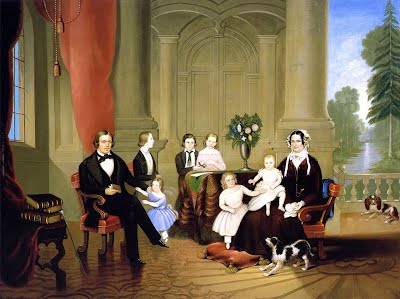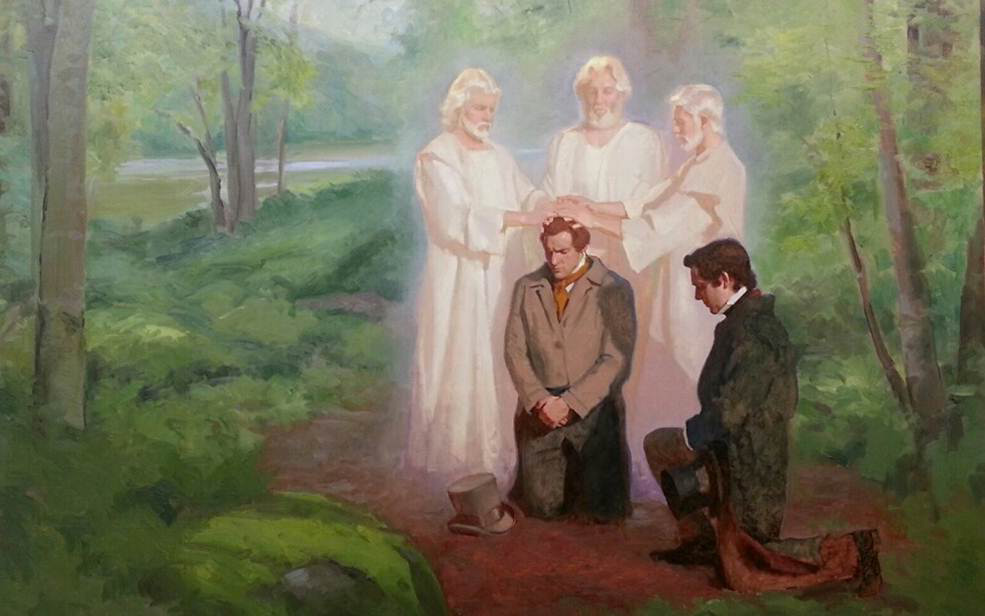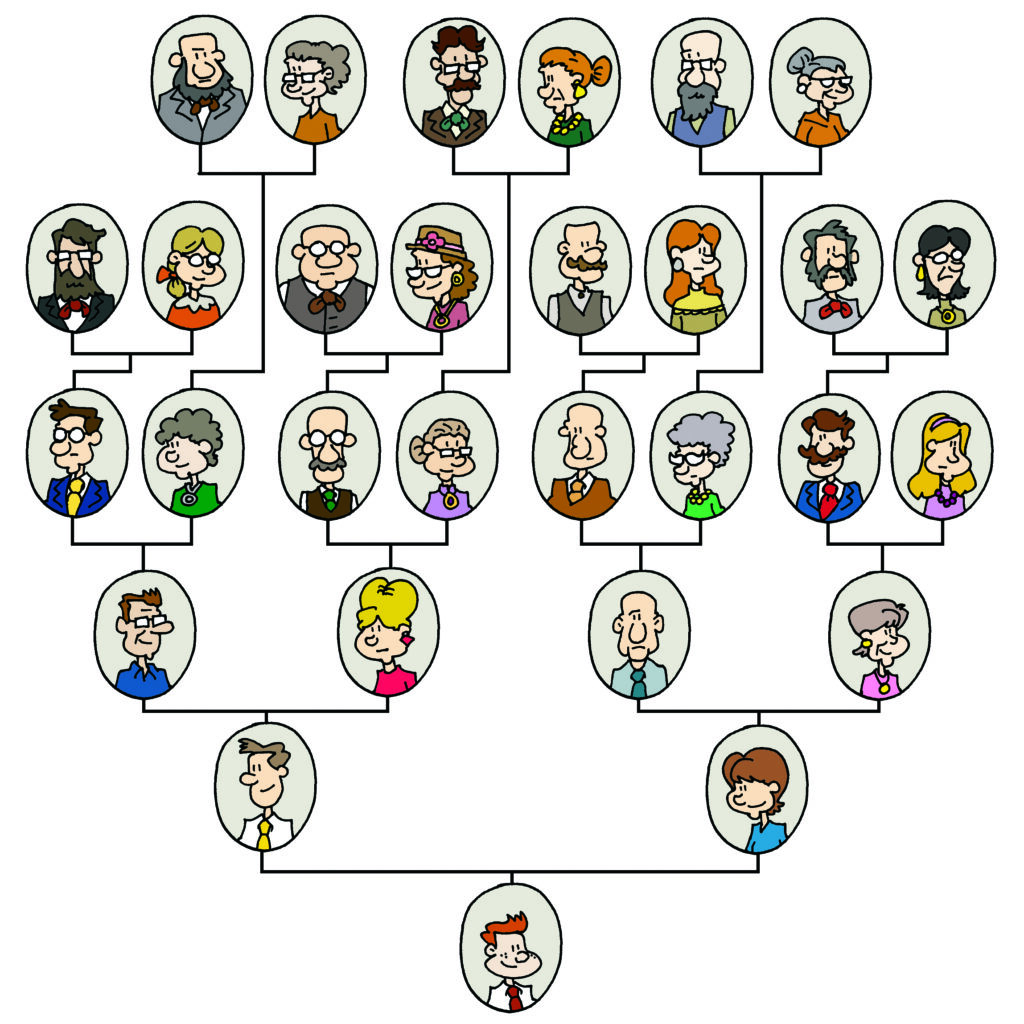To accompany your Come Follow Me study for November 3-9
In addition to reading these sections you will want to read:
- Chapter 49: Doctrine and Covenants 125–28 (churchofjesuschrist.org)
- Joseph Smith’s Revelations, Doctrine and Covenants 125 (churchofjesuschrist.org)
- Joseph Smith’s Revelations, Doctrine and Covenants 126 (churchofjesuschrist.org)
- Joseph Smith’s Revelations, Doctrine and Covenants 127 (churchofjesuschrist.org)
- Joseph Smith’s Revelations, Doctrine and Covenants 128 (churchofjesuschrist.org)
- Saints, 1:415–27;
- “Letters on Baptism for the Dead,” Revelations in Context, 272–7
- “Take Special Care of Your Family,” Revelations in Context, 242–49.
You may also enjoy watching the following videos:
If you would like a Kahoot game related to these sections which you could use with your family or your class, or which you could play or learn from individually by converting it to a “Challenge” version, click here https://create.kahoot.it/share/doctrine-and-covenants-125-128/5fde6ca1-a8fe-4de7-803d-dd37d77ec660. To use it with a group, after clicking on this link, you will need to log into Kahoot, creating a free account if you have not done so previously, then click on the blue “Host Live” button or the gray “Assign” button, depending on how you wish to use the Kahoot. Some of the Kahoot questions may presuppose that the player has read through the suggested answers to the following Points to Ponder and at least has browsed the Institute student manual as well.
Points to Ponder in Doctrine and Covenants 125-128
1. Why was it so appropriate that Brigham Young be given a reprieve from serving missions from 1841 on?
2. Why were D&C 127 and 128 presented to the Church as “epistles”? How do they differ from other revelations?
3. How could Joseph Smith seem so positive and untroubled when he was in hiding from those who wanted to see him dead?
4. What do we learn from 128:1-2 about how to recognize revelation?
5. What do we learn in D&C 128 about the importance of clerks and secretaries in the Church?
6. Why are baptismal fonts typically placed below ground level?

7. How could you help a friend who thought baptism for the dead sounded like a dumb idea?
8. Why would our own salvation depend on that of our progenitors? What if our ancestors don’t want to accept the gospel? How can we then be “made perfect”? (128:15)
9. What evidence do you find in this week’s reading of remarkable events in Joseph Smith’s life that were never revealed to the Church in any detail?
10. When John the Baptist restored the Aaronic Priesthood, he indicated it would not be taken from the earth “until the sons of Levi do offer again an offering unto the Lord in righteousness.” What interesting facet of that “offering” do we learn about in D&C 128? How are we doing on it as a Church?
11. What if I don’t have any idea of how to do family history but would like to get started?
12. What do you consider the most motivational passage in this week’s reading?
Possible Answers to Points to Ponder in Doctrine and Covenants 125-128
1. Why was it so appropriate that Brigham Young be given a reprieve from serving missions from 1841 on?
He had served as a missionary during at least a part of every year he had been a member of the Church, leaving his wife to care for the family alone. In early 1839, his wife lived in 11 different places during a three month span. His wife and family had been sick and homeless when he left on his latest mission in 1839. When he returned in 1841, they were living in a small, unfinished cabin. The Lord conveyed through Joseph Smith that it was enough, his and his family’s sacrifice was acceptable, and he was no longer to leave them for an extended period.

2. Why were D&C 127 and 128 presented to the Church as “epistles”? How do they differ from other revelations?
Joseph Smith was in hiding from his enemies, so necessarily wrote letters communicating inspired matters the Lord had communicated to him. Though these letters give clear evidence of the Prophet’s having received revelation on the subject of baptism for the dead, they are not announced as revelations themselves.
3. How could Joseph Smith seem so positive and untroubled when he was in hiding from those who wanted to see him dead?
- He had complete faith in God to keep him safe until his mission was completed.
- He knew what was ahead after this life.
- He recognized he was in good company, as Paul and other ancient disciples had gone through similar persecutions.
- He was by now used to going through such challenges.
4. What do we learn from 128:1-2 about how to recognize revelation?
If certain “additional views” come to us and “occupy our mind” and “press” strongly upon our feelings, it is likely to be revelation from God, provided we are living to merit such divine communication.
5. What do we learn in D&C 128 about the importance of clerks and secretaries in the Church?
We are told that we are to be judged out of the books, including books with the record of ordinances received. Only that which is recorded will be counted as having been done. (128:8)
6. Why are baptismal fonts typically placed below ground level?
To symbolize the grave, with one’s coming out of the water symbolizing the resurrection.
7. How could you help a friend who thought baptism for the dead sounded like a dumb idea?
- Show him that it was a mark of God’s justice and mercy—justice in requiring the same ordinance of everyone, living or dead, and mercy in providing a way for those who died without the opportunity to accept a proxy baptism on their behalf.
- Help him understand that no one is forced to be a Latter-day Saint against his will, but all will have opportunity in the spirit world to hear the gospel message and accept or reject it.
- Show him that it was scriptural, by citing 1 Corinthians 15:29.
8. Why would our own salvation depend on that of our progenitors? What if our ancestors don’t want to accept the gospel? How can we then be “made perfect”? (128:15)
- Our salvation depends on our willingness to keep all of God’s commandments, including doing all we can for our ancestors, since the Lord has so commanded. If we were lax about doing family history and temple work for them, the Lord could judge us unworthy of the blessings we pretend to be seeking.
- Our salvation includes being sealed in eternal family units, not only to spouses but to parents and children.
- If we have “weak links” of ancestors who refuse to accept the gospel in eternity, we will be sealed to the next worthy ancestor above them in our pedigree. No one will have a line of only unworthy ancestors, as all of our lines ultimately go back through Noah and Adam, who are among the greatest of God’s prophets.
9. What evidence do you find in this week’s reading of remarkable events in Joseph Smith’s life that were never revealed to the Church in any detail?
In D&C 128:20-21 we have reference to the following extraordinary events, for which we lack significant details:
- Michael’s appearance on the banks of the Susquehanna detecting the devil when he appeared as an angel of light. (128:20)
- Possibly another communication from Michael (Adam), the archangel (128:21)
- The voice of Gabriel (Noah) (128:21)
- The voice of Raphael (identity unknown) (128:21)
- The voice of “divers angels,” not necessarily limited to those recorded elsewhere (128:21)
- The appearance of Peter, James, and John on an unspecified date “in the wilderness between Harmony, Susquehanna county, and Colesville, Broome county, on the Susquehanna river” to restore the Melchizedek Priesthood, of which we have very few other details.

10. When John the Baptist restored the Aaronic Priesthood, he indicated it would not be taken from the earth “until the sons of Levi do offer again an offering unto the Lord in righteousness.” What interesting facet of that “offering” do we learn about in D&C 128? How are we doing on it as a Church?
D&C 128:24 suggests that offering is to include “a book containing the records of our dead, which shall be worthy of all acceptation.” The goal of FamilySearch is to have linked records of all the estimated 100 billion people who have ever lived, plus all who will yet live, with temple ordinances done for each. As of September 2020, FamilySearch had records of some 8 billion individuals. So obviously, the work is just beginning. As many of those who have died did so with no permanent record being left, much of this work will necessarily await the Millennium, but it is clear that the Lord wants us to feel the urgency of doing all we can with the records available now.

11. What if I don’t have any idea of how to do family history but would like to get started?
See my “Family History Helps for Beginners” at https://latterdaysaintandhappy.com/family-history-helps-beginners/
12. What do you consider the most motivational passage in this week’s reading?
Your choice. I might pick 128:22-23.
